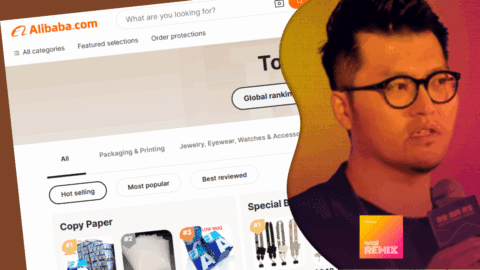On Dec. 14, when the Federal Communications Commission (FCC) voted 3-2 to repeal current net neutrality regulations designed to ensure that consumers have equal access to the Internet, content providers like YouTube and Netflix were not the only companies worried that their offerings could take a major hit. While effects of the repeal likely won’t be felt until 2018 at the earliest, e-Commerce retailers now must adjust to an uncertain environment — one in which they may have to pay up in order to get out in front of the consumer.
The main argument against the repeal is that Internet Service Providers (ISPs) won’t be required to treat all data the same, so they could potentially charge users more to access specific sites or view certain content, or impose tighter data caps. Additionally, ISPs could force Internet companies and web sites to pay more for faster connections — potentially leading to the slowdown or even blocking of online traffic.
At this point, many of the scenarios associated with Internet deregulation remain hypothetical. But these moves would be legal as long as ISPs such as Comcast, Verizon and AT&T disclose their policies to subscribers.
E-Commerce Expenses Could Increase If ISPs Don’t Play Nice
In a free-for-all atmosphere where larger companies can pay more money to partner with ISPs, major retailers are likely to have an advantage in gaining online visibility. However, even they would have an extra expense they didn’t have to worry about before the net neutrality repeal. At the end of the funnel, this would then affect consumers, who then may have to pay more.
“You’re adding an extra business cost to innovation for that same level of access,” said David Pierpoint, Senior VP of Performance Media at Ansira in an interview with Retail TouchPoints. “How do you convince a consumer that that’s worth it? What you’ll see is that the retailers will have to absorb those costs, and then pass them on to consumers. The gist of the argument with content providers, is that the big guys like Netflix will still be able to make the best deals so they’ll be prioritized, and first in line. From a retail perspective, the person who has the best position on Main Street with the most traffic wins the day, and you now just hope that you can get a spot somewhere else. The whole point of the Internet is to not have that problem — it’s to have the open access.”
These “tolls” could in effect force retailers to pay extra for media visibility, whether for advertising space, search marketing or other content.
Brian Kilcourse, Managing Partner of RSR, related the potential online landscape to the national highway system:
“If you can imagine a highway system, what you would see is an endless stream of Walmart trucks traveling out to the West Coast to put goods into their stores,” Kilcourse said in an interview with Retail TouchPoints. “Now imagine Walmart having the ability to buy a lane so that their trucks could be unimpeded by everyone else driving in their sedans, then you have an idea of what the Internet without regulation is going to be like. People will be able to have priority lanes for their traffic. For something that’s so fundamental to our economy, it’s just a huge error to expect businesses to be able to regulate that fairly. Businesses aren’t in business to be fair to their competitors.”
SMBs To Take The Largest Hit
Online-only SMBs and startups with less revenue and consumer reach would be the first to feel the pain of deregulation, since they lack the resources to pay for prioritization in the way a larger competitor could.
In April 2017, a group of 1,000 U.S. SMBs wrote an open letter to the FCC and Chairman Ajit Pai, arguing: “Without net neutrality, the incumbents who provide access to the Internet would be able to pick winners or losers in the market. They could impede traffic from our services in order to favor their own services or established competitors. Or they could impose new tolls on us, inhibiting consumer choice. Those actions directly impede an entrepreneur’s ability to ‘start a business, immediately reach a worldwide customer base, and disrupt an entire industry.’”
With these concerns, smaller players and new entrants must continue focusing on what differentiated them in the first place to stay on top.
“It’s really about personalization, and providing customers a real personalized experience, because those are the things that are going to help you retain your loyalty and help you compete effectively,” said David Naumann, VP of Marketing at Boston Retail Partners. “It’s still the basics, and ensuring that customers are brand enthusiasts. If we see the changes that we suspect might happen, where there’s a sliding scale for bandwidth and speed, companies are going to be ultra-diligent in optimizing their web site. It might actually create some opportunities for technology companies that look to boost speed and performance based on bandwidth.”
There’s No Stopping Innovation
Despite the uproar over the repeal and the disadvantages that businesses may have to deal with as a result, Kilcourse believes that innovators will still find a way to innovate, even if the climate seems designed to stifle it.
“Anyone that thinks we’re done with innovation isn’t paying attention,” Kilcourse said. “The interesting thing about innovation in today’s world is that it’s not being driven by corporations. It’s being driven by consumers. Retailers didn’t go mobile because they thought it was a brilliant idea. They went mobile because consumers demanded they go mobile. Consumer adoption of technology is driving this innovation. That means that we don’t know what the next innovation is going to be. The way the consumer chooses to use technology to solve their lifestyle problems is not all that predictable.”













